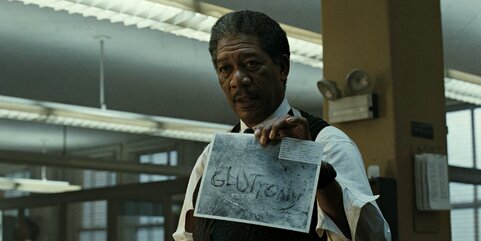TBD | A charisma-free dork uses time travel to make personality-less babes fall in love with him. Directed by Richard Curtis Starring Domhnall Gleeson, Rachel McAdams, and Bill Nighy Review by Jon Kissel |

 One of the eureka moments to come out of the MeToo Hollywood revelations was that so much of how the public approaches male-female dynamics is informed by the creations of sex pests and rapists. Hollywood romances seep into brains, convincing people that they’re the protagonists in their own sunny representation of love lost and found on the sidewalks of a Canadian city masquerading as New York. Once it’s discovered that the executives, producers, and directors who sculpt these stories have exploitative approaches to women in their own lives, one has to consider what they’ve been putting into the world for popular consumption. Richard Curtis does not belong to the gross fraternity of MeToo villains, but the depiction of women and the male pursuit of them in his movies could easily have come from the jaundiced mind of a serial abuser. The sentimental drivel of his films combined with aw-shucks protagonists whose clumsy obliviousness doesn’t stop them from getting the girl makes him one of my most hated writers/directors, and his high-concept About Time is yet another example of what makes Curtis such an irritating figure, albeit not a criminal one.
0 Comments
 Movies used to be weirder. The highest-grossing film of 1985 centers on the lead accidentally making his teenage mom fall in erotic love with him, up to the point where he finds himself in a car with her during a high school dance. Several years earlier, Luke Skywalker made out with his sister. These kinds of moments would never make it past Vin Diesel, Tom Cruise, or Kevin Feige, obsessed as they are with franchise management at the cost of anything potentially alienating. Director Robert Zemeckis wasn’t afraid of risks when making Back to the Future, a film with mass appeal that still has the confidence to mess with its audience. Zemeckis has fallen far from his 80’s and 90’s heights thanks to a 21st century obsession with heavily CGI’d messes that no one asks for and few remember, but there was a time when he could really make a mom horny for her son.
 Any science fiction concept has to establish rules. How is this world different, and with one limit removed, what are the new limits? So many films get tripped up at this requirement. Get too complex, and the film becomes a maze. Fail to demonstrate the rules visually, and the viewer’s in a lecture. Time travel is particularly susceptible to these kinds of traps. Everyone with a working memory can imagine going back in time, but the rules of such a thing are impossible to conceive. The emotional stakes get lost in the mechanics and the timelines and the paradoxes, when the root question, as it is in all sci-fi, is simply ‘What if?’ Rian Johnson undoubtedly wrestled with how to bridge all of this and more when he was writing his 2012 breakthrough Looper. Whether it was always his intention to have his characters dismiss the intricacies of what it would physically mean to go back in time and sit down at a diner with one’s younger self, or if he cut a 10-minute sequence that laid out what can and cannot happen, that disinterest in indulging the Reddit crowd who might’ve dissected this film as intricately as they pick at Johnson’s Last Jedi fight scenes becomes what makes Looper so distinctive. Johnson frees the viewer from having to understand and gives them permission to feel the impact of what the characters are doing and why. We can’t travel in time but we can think about changing the narrative of a person’s life, of what is worth hanging onto at all costs, of how much evil can be endured in pursuit of a good end. Give me the film that prompts those questions every time over the dry intellectual exercises in Primer or Tenet.
 David Fincher’s first film, Alien3, infamously begins with all the hard sacrifice from its action crowd-pleaser predecessor up in smoke before the opening credits are finished. Ellen Ripley’s surrogate daughter and potential love interest that she’s both saved from the alien queen don’t survive a crash landing on a prison planet, and the movie continues without them. That kind of ruthlessness will be with Fincher throughout the rest of his career. As bleak as his debut is, he tops himself with his smash hit follow-up Seven, a serial killer noir that constructs the worst contemporary world possible and dares the viewer to find a glimmer of hope. Featuring career-changing performances from its main cast and a series of unforgettable images, Seven stamped Fincher as a major filmmaker, an iconoclast who rejected audience expectations and kept coming back to whatever fucked up thing popped into his head.
 Victor Hugo’s Les Miserables, my favorite book, doesn’t introduce its protagonist or any of its main characters for its first sixty pages. As is typical of sprawling 19th century novels, the lengthy prologue is given over to historical scene-setting through the eyes of a minor character, the bishop who will set Jean Valjean on his path to redemption. One of these early chapters is given over to the bishop’s encounter with a dying revolutionary who was present at the major events of the French Revolution some decades earlier. The bishop starts off indignant about all the crimes of the Reign of Terror, especially against Queen Marie Antoinette and her children, but the revolutionary grants him sympathy for them if he’ll extend the same sympathy to the millions who suffered under absolute monarchy. Focusing on well-known sufferers is a choice that lacks scope and imagination, memorably described by Hugo as taking in the thunderbolt and ignoring the storm clouds that made it possible. Sofia Coppola’s Marie Antoinette is all thunderbolt, a fatally flawed film whose considerable style and technical mastery cannot overshadow how perverse it is to frame Madame Deficit as any kind of victim of the patriarchy. History or feminism owes this person nothing, and no small amount of pleasure is taken from knowing that many of the people onscreen , including her, are going to get theirs. However, if a film is going to be this unnecessary, it may as well be as fun as this one is. |
AuthorsJUST SOME IDIOTS GIVING SURPRISINGLY AVERAGE MOVIE REVIEWS. Categories
All
Archives
April 2023
Click to set custom HTML
|